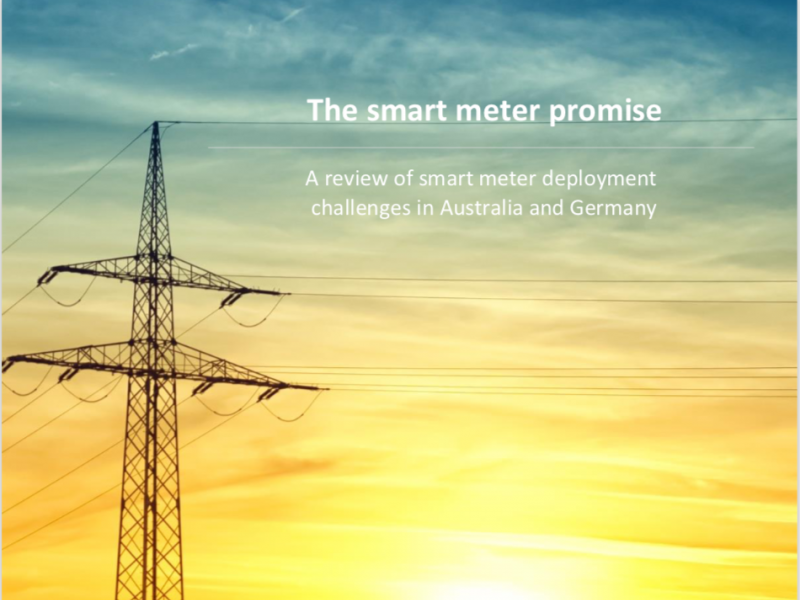The smart meter promise: A review of smart meter deployment challenges in Australia and Germany

Energy transition, energy security and energy affordability are critical and highly contested policy issues in both Australia and Germany, as elsewhere. Small consumers are being enrolled in a new wave of energy governance, shaped around promises of customer choice, lower prices and demand side management.
New energy governance is seen to hinge on the collation and utilisation of high resolution and timely energy consumption data, collected by a new generation of so-called 'smart meters'. Both technology and data are claimed to catalyse a raft of economic and system-wide benefits including: increasing innovation and competition in the energy marketplace, shifting energy consumption patterns to highest value uses, making more efficient use of existing infrastructure and delaying expensive investments in additional energy system capacity, and improving the efficiency and accuracy of energy markets.
But how are benefits and risks being passed on to consumers?
We compared three smart meter rollouts, two in Australia and one in Germany, with regards to their underlying objectives, rollout models and data access and security regimes. Our preliminary study found that the distribution of benefits and risks varies widely across different levels of the system – from individual households to retailers to distribution businesses or to the wider network. Who benefits from smart metering depends heavily on the interplay of infrastructure, regulatory arrangements and industry structure.
The nature of the benefits and risks are also changing. The explosion of consumer data enabled through the integration of information technologies across multiple daily activities – from electricity consumption to banking to telecommunications – has the potential to empower consumers but the risks need careful oversight to ensure protection of consumer privacy. Smart meters are representative of wider regulatory trends to situate the consumer as a central pivot of information but simultaneously to address the attendant risks by predicating regulatory intervention on the premise of consumer protection.
In turn, we need to find meaningful ways to reduce energy prices and expand new energy services like solar power and electric vehicles, and smart metering can help deliver these benefits. However, robust governance and monitoring regimes are crucial for the social acceptance of new technology. Further research and practical experience with the deployment models and data protection regimes of large-scale smart meter rollouts are necessary to assess whether the right balance is being achieved between innovation, competition and data security.
Kallies A., Chandrashekeran S., Keele S. and Godden L. (2019) The Smart Meter Promise: A Review of Smart Meter Deployment Challenges in Australia and Germany, Report for the Australian-German Energy Transition Hub, University of Melbourne: Victoria.





